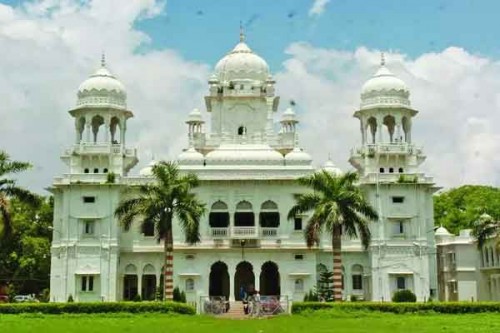KGMU surgeon offers new hope to patients with rectal prolapse

Lucknow, Jan 8 (IANS) A surgeon at King George's Medical University (KGMU) has gained recognition, winning the Best Research Paper Award recently by giving new hope to patients suffering from rectal prolapse, a condition where part of the rectum protrudes outward.
The innovative technique has been successfully applied to 100 patients.
The head of the surgical gastroenterology department at KGMU, Prof. Abhijit Chandra, has developed this minimally invasive technique, offering faster recovery and reduced complications compared to traditional methods.
The latest individual to undergo the procedure is a Lucknow-based clerk, whose life was disrupted by rectal prolapse. Home remedies and work stress worsened his condition, leading him to seek help at KGMU.
Chandra diagnosed him and presented a novel solution: Natural Orifice Trans-anal Endoscopic Rectopexy for Complete Rectal Prolapse.
Instead of a large incision, Chandra’s method uses thin needles and stitches to secure the prolapsed rectum to the abdominal wall, a sturdy "shelf" above. This approach avoids unnecessary muscle cutting and scarring, leading to quicker recovery and less pain.
"We lift the rectum and secure it through sutures, fixing it to the abdominal wall like a basket on a shelf," explained Chandra.
This not only addresses the prolapse but also minimises the risk of post-operative complications like bowel or anal incontinence.
Internationally, the technique is featured in the prestigious medical journal "Diseases of the Colon & Rectum".
An editorial by renowned surgeon Patricia Sylla highlighted its potential, especially for frail patients.
Chandra is optimistic about the future of his invention.
“This technique offers new hope for individuals suffering from rectal prolapse,” he said.
“It can significantly improve their quality of life by providing effective treatment with minimal drawbacks.”

|

|

